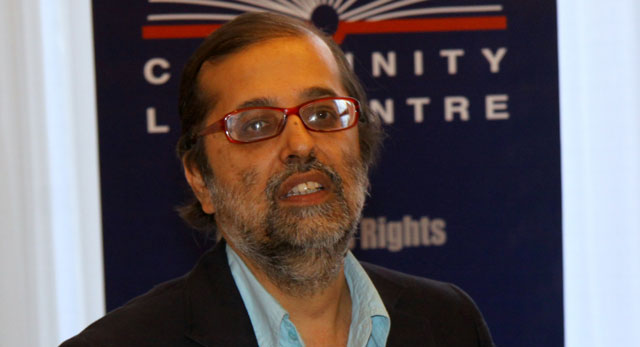 New communications minister Yunus Carrim is set to face his first big test. How he responds will set the tone for his tenure and define his approach to Telkom and to competition in the sector.
New communications minister Yunus Carrim is set to face his first big test. How he responds will set the tone for his tenure and define his approach to Telkom and to competition in the sector.
A decision by the Independent Communications Authority of South Africa (Icasa) this week to publish draft regulations on local-loop unbundling (LLU), reversing an earlier decision to allow Carrim time to review the document, is a fascinating development. Icasa has effectively drawn a line in the sand and is asserting its independence from both the ministry and the department of communications.
LLU is a highly contentious issue. There are various forms of it, but in essence it involves opening up fixed-line operators’ — in South Africa’s case, Telkom’s — last-mile copper cable infrastructure into homes and businesses to rival service providers.
Telkom has — until now, at least — fought tooth and nail against LLU, threatening legal action at every turn and warning that its business and even the economy could be imperilled if the regulatory intervention is imposed on it.
A lot of this, of course, is bluster. LLU has been imposed with varying levels of success in markets across Europe and North America. To my knowledge, it hasn’t destroyed incumbent fixed-line operators in any of those countries.
Yes, Telkom has a valid concern that it isn’t able to recover the cost of the average fixed line in service through basic line rental, but this isn’t necessarily a good argument against pro-competitive regulatory interventions. The operator probably also grossly exaggerates the size of this so-called “access-line deficit”.
Icasa argues that it has no choice other than to craft LLU regulations. It has been instructed to do so by its complaints and compliance committee after Telkom blocked a request from rival Neotel for access to two of its Johannesburg telephone exchanges using existing regulations for leasing telecoms facilities.
But its initial decision to allow Carrim to look over the draft regulations before publishing them — the request for this was apparently made by communications department director-general Rosey Sekese at a recent meeting with Icasa — has raised a few eyebrows. The authority is under no legal obligation to give the minister prior sight of regulations it intends publishing and doing so raises questions as to just how independent it is of the ministry.
Perhaps Icasa was concerned about public perceptions when it decided this week to reverse its earlier decision and publish the draft regulations without first waiting for feedback from Carrim’s office.
How he reacts to this — if he does — will be instructive. What will be even more interesting is how he deals with a clear difference of opinion with Icasa over whether a regulatory impact assessment (RIA) to determine the likely impact on the industry of LLU should be done before the final regulations are published.

Icasa has made it quite clear to the department that it believes a RIA — which is an expensive and time-consuming process — is unnecessary, especially in light of the fact that the authority is legally bound to introduce LLU, in part as a consequence of the instruction to do so from its complaints and compliance committee.
There are concerns inside Icasa, too, that the proposed RIA is an attempt by the department simply to stall LLU and to protect Telkom from further competition. There may be something to these fears. Responsibility for government’s 39,8% shareholding in the telecoms operator rests with the department of communications, the very same department that is expected to craft policy that benefits the entire sector, not just Telkom. This conflict has been problematic for the past two decades. For this reason, oversight of Telkom — and possibly other state-owned communications companies — should be transferred to the department of public enterprises.
Carrim is clearly going to need to tread carefully — and take a pragmatic approach — on the unbundling issue.
The right approach is not to interfere at Icasa — a tactic too often used by Carrim’s predecessors — but rather to find ways of strengthening the regulator by ensuring it is correctly funded and resourced so that it can perform its duties correctly.
- Duncan McLeod is editor of TechCentral. Engage with him on Twitter
- This column was first published in the Sunday Times




